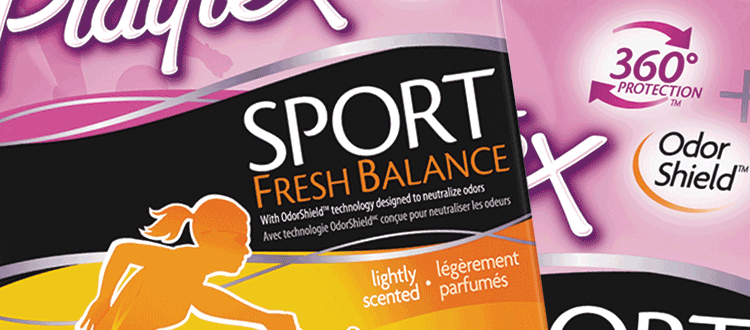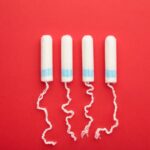Are We Seeing the End of Scented Tampons?
 Jamie McConnell Deputy Director |
Announcing a big win for menstrual equity! Menstrual product manufacturers have mostly stopped manufacturing scented tampons for the U.S. market – including the world’s leading manufacturer of tampons, Procter & Gamble.
This is an important victory for product safety and a shift in the narrative that has perpetuated a myth that flowery scents are needed to mask a period’s “smell”. But it is also only a step; this practice is currently only happening in the U.S. and scented tampons are still sold in other countries.
According to WVE’s analysis, brands that previously made scented tampons such as Tampax (the top selling tampon brand), Well at Walgreen’s, and tampons sold in dollar stores by the brands DG Health, Breeze, Topcare, and Opal Femtex are now only offering unscented options. Playtex tampons is one of the only brands to continue to use fragrance in tampons sold in the United States (C’mon Playtex!). But again, Tampax and other brands still market scented tampons in other countries however, and fragrance is still used widely in scented menstrual pads.
Concerns About Fragrance Chemicals in Menstrual Products
Why is this important? Fragrance or scents can contain dozens of chemicals, some of which have been linked to cancer; reproductive harm like infertility and birth defects; allergic reactions and other health concerns.There are no state or federal laws requiring the over 4,000 ingredients that may be used in fragrance to meet any kind of safety standard—determining the safety of fragrance ingredients currently falls to…the FRAGRANCE INDUSTRY. In fact, over 1/3 of fragrance ingredients approved by the industry have been flagged as potentially toxic by scientists around the world. There is no research available that has examined the safety of fragrance exposure through highly sensitive and absorptive vaginal tissue.
Eliminating the use of fragrance in tampons in the U.S. means millions of menstruators will no longer be exposed to unnecessary chemicals used in fragrance from these products. It is estimated that people who menstruate may use up to 16,000 tampons before menopause—that potentially adds up to a lot of exposure to fragrance chemicals.
Fragranced or scented menstrual products are not only unnecessary but also perpetuate the stigma and shame around menstruation — that it is something that needs to be covered up or disguised. There is no need for “fresh scent” tampons because there is nothing wrong with the way we smell when we have our period.
Lack of Ingredient Safety Standards for Menstrual Products
Fragrance is part of a much larger issue when it comes to menstrual product safety. Currently, there is no federal law requiring the disclosure of fragrance ingredients in menstrual products like tampons (New York is the only state with a law on the books requiring disclosure of all intentionally added ingredients in menstrual products). As a result, people who use scented products have no idea what chemicals they are putting in and on their bodies.
What’s more, there is no federal law requiring ingredients in menstrual products to meet a standard of safety. This is especially concerning considering the route of exposure—these products are used in the body and on sensitive vulva tissue, possibly increasing the uptake of chemicals into the body.
Not surprisingly, there is a serious lack of data when it comes to understanding the impact of chemicals used in menstrual products on users’ health. That’s why it’s so important to pass legislation like the Robin Danielson Act, which requires the National Institute of Health to conduct and support research into the impact chemicals used in menstrual and intimate care products may have on users’ health.
It’s great to see manufacturers eliminating the use of fragrance in tampons and we hope to see a similar trend worldwide both for tampons and pads in the near future. However, we can’t rely on manufacturers voluntary efforts alone. We need to enact federal laws that ensure the safety of these products, because we all deserve access to affordable and safe products.
Note, you may find some brands that have eliminated fragrance from tampons still for sale on the internet as supplies are sold down. Some helpful tips you can use when purchasing menstrual products include:
- Read ingredient listings on the product package and/or website.
- Look for products that do not contain plastics (ingredients like polyester, polypropylene, or polyethylene). If possible, select products that contain 100% cotton, without additional plastic layers.
- Look for products made with simpler and fewer ingredients
- Avoid fragranced products
- Avoid products with colorants
- Avoid products with additives like PEGs, which may be contaminated with ethylene oxide or 1,4 dioxane.
And lastly, pay attention to any symptoms that occur during the use of a product – and try another brand for a month to see if it makes a difference.
Want to tell the makers of Playtex to stop lagging behind and stop selling their scented tampons? Me too! Click here.





